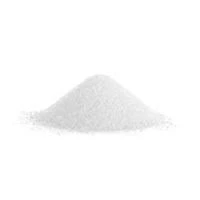
Benefits and Uses of Magnesium Sulfate Fertilizer for Optimal Plant Growth
The Importance of Magnesium Sulphate Fertilizer in Agriculture
Magnesium sulphate, commonly known as Epsom salt, is an essential inorganic compound utilized in agriculture as a fertilizer. Its chemical formula, MgSO₄, reflects its composition, comprising magnesium, sulfur, and oxygen. The increasing necessity for sustainable farming practices has led to a renewed interest in magnesium sulphate fertilizers due to their numerous benefits for crops, soil health, and overall agricultural productivity.
Role of Magnesium in Plant Growth
Magnesium is a vital macronutrient required by plants for various physiological functions. It is a central atom in chlorophyll, the green pigment responsible for photosynthesis. Without sufficient magnesium, plants struggle to produce energy from sunlight, leading to poor growth and lower yields. Moreover, magnesium plays a critical role in the synthesis of nucleic acids and proteins, contributing to the overall metabolism and development of the plant.
Deficiency symptoms in plants often manifest as chlorosis, where leaves turn yellow due to insufficient chlorophyll production. This phenomenon typically starts with the older leaves and progresses to the younger ones if not addressed. A magnesium deficiency can lead to stunted growth, reduced fruit quality, and, ultimately, lower crop yields, making magnesium sulphate a crucial amendment for affected soils.
Sulfur A Key Secondary Nutrient
In addition to magnesium, magnesium sulphate provides sulfur, another essential nutrient for plants. Sulfur is a key component of amino acids, vitamins, and coenzymes. It plays a significant role in the synthesis of certain proteins and enzymes that are vital for plant growth and development. Sulfur deficiency can exhibit symptoms similar to nitrogen deficiency, often leading to stunted growth and yellowing of leaves.
The combination of magnesium and sulfur in a single fertilizer product makes magnesium sulphate an attractive option for farmers seeking to enhance soil fertility and plant health. It allows for the simultaneous correction of two nutrient deficiencies that can adversely affect crop performance.
Soil Health and Nutrient Management
magnesium sulphate fertilizer

The introduction of magnesium sulphate into soil can significantly improve its structural properties and nutrient-holding capacity. It has the ability to displace sodium ions in sodic soils, thus enhancing soil permeability and aeration. This increased drainage can prevent waterlogging, which is detrimental to root respiration and overall plant health.
Moreover, magnesium sulphate helps to fill the nutrient gaps in soils that are low in magnesium and sulfur, ensuring that plants have access to the essential nutrients they need for optimal growth. Regular application of magnesium sulphate can lead to better crop rotation practices and increased diversity in cropping systems, contributing to sustainable agricultural practices.
Application and Benefits
Magnesium sulphate can be applied in various ways, including broadcasting on soil, as a solution in fertigation, or as a foliar spray. The method of application often depends on the specific plant requirements, soil conditions, and the timing during the crop cycle. Foliar application can yield quick results, especially in cases of acute nutrient deficiency.
The benefits of magnesium sulphate fertilizer extend beyond immediate nutrient availability. It enhances seed germination rates, boosts plant resilience against environmental stressors, and improves the quality of produce, including enhanced flavor and longer shelf life of fruits and vegetables.
Environmental Considerations
In an age where the environmental impact of agriculture is under scrutiny, magnesium sulphate serves as an environmentally friendly alternative to chemical fertilizers that can lead to soil degradation and waterway pollution. By promoting healthy and sustainable practices, magnesium sulphate can help farmers achieve their agronomic goals while safeguarding the environment.
Conclusion
As the demands of global food production increase and the challenges of soil depletion and nutrient management become more pressing, the role of magnesium sulphate fertilizer in agriculture cannot be overstated. Its dual action as a source of both magnesium and sulfur, along with its benefits to soil health and crop productivity, makes it an invaluable tool for modern farmers. By integrating magnesium sulphate into fertilization strategies, agricultural practitioners can foster sustainability, promote higher yields, and contribute to a healthier ecosystem, ensuring food security for future generations.
-
Buy High-Quality Trichloroisocyanuric Acid for Sale | TCCA 90% SupplierNewsAug.30,2025
-
Pure Sodium Dichloroisocyanurate Dihydrate | Powerful DisinfectantNewsAug.29,2025
-
Industrial Chemicals: Quality & Purity for Every IndustryNewsAug.28,2025
-
Nitrile Rubber Honoring Strict Production StandardsNewsAug.22,2025
-
Aspartame Ingredients Honoring Food Safety ValuesNewsAug.22,2025
-
Fertilizer for Balanced Plant NutritionNewsAug.22,2025
-
Cyanide Gold Processing with High Purity AdditivesNewsAug.22,2025
Hebei Tenger Chemical Technology Co., Ltd. focuses on the chemical industry and is committed to the export service of chemical raw materials.
-

view more DiethanolisopropanolamineIn the ever-growing field of chemical solutions, diethanolisopropanolamine (DEIPA) stands out as a versatile and important compound. Due to its unique chemical structure and properties, DEIPA is of interest to various industries including construction, personal care, and agriculture. -

view more TriisopropanolamineTriisopropanolamine (TIPA) alkanol amine substance, is a kind of alcohol amine compound with amino and alcohol hydroxyl, and because of its molecules contains both amino and hydroxyl. -

view more Tetramethyl Thiuram DisulfideTetramethyl thiuram disulfide, also known as TMTD, is a white to light-yellow powder with a distinct sulfur-like odor. It is soluble in organic solvents such as benzene, acetone, and ethyl acetate, making it highly versatile for use in different formulations. TMTD is known for its excellent vulcanization acceleration properties, which makes it a key ingredient in the production of rubber products. Additionally, it acts as an effective fungicide and bactericide, making it valuable in agricultural applications. Its high purity and stability ensure consistent performance, making it a preferred choice for manufacturers across various industries.





